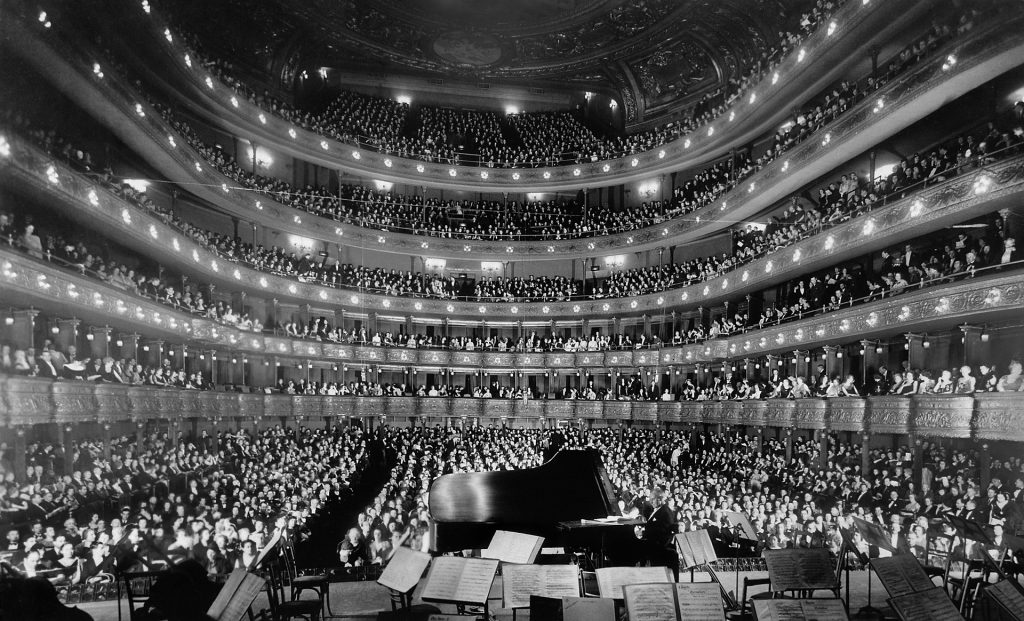Will The Great Resignation Be a Renaissance or a Blip

We’re in the middle of what many economists are calling The Great Resignation, a phrase that is being attributed to Professor Anthony Klotz. COVID had been central in so many people’s mind for so long, and now it’s being pushed down ever so slightly. So things that had been background concerns during the lockdown months–like getting away from that job you hate–are now front of mind.
Many people quitting in this Great Resignation have done so anyway, they were just delayed in doing it, like with so many other things. But there’s clearly more than just normal turnover happening.
Workers expectations are changing. Yes, it’s the whole Working From Home thing, but it’s more than that. Employees want flexibility. They want a life that isn’t just about work. And millions are leaving their jobs hoping to make their lives better.
But where will This Great Resignation lead us? Will it be a mini Renaissance, a legitimate change for the better, or just a blip that will be forgotten in a few years?
Tragedy Can Lead to Growth
The deaths that have occurred due to COVID (either directly or indirectly) are a tragedy. It is absolutely horrible how many hundreds of thousands of people in the US, not even to mention the hundreds of thousands more worldwide, have lost their lives due to the spread of this virus.
Tragedies suck. I’ve had enough of them in my life to know that whatever good might be on the other side doesn’t make up for that experience of loss.
Tragedy changes us. The question is if we change for the better.
To briefly touch on my personal tragedy, I lost a loved one about 11 years ago now, and I was absolutely devastated. It may be cliché to say, but my world was turned upside down.
I had, since at least kindergarten, strived to be amazing at everything I did. Long hours at school ranked me 2nd in my high school graduating class (which I jokingly refer to as a fluke I wasn’t higher). I brought that same gusto to the workforce.
But none of that planning, that hard work, that striving to be the best could fend off death. It was a wakeup call, a reminder to keep my priorities in check.
COVID has affected people differently, but we’ve all been at least partially stung by the virus and its effects. For millions of people, it has done what so many tragedies do and helped reorient, to change priorities.
Millions have taken that opportunity to change jobs, change careers, or (and, yes, this is mostly going to be for the very privileged) just stepped away to reassess what this is all about.
This is our Great Resignation. It has come from something truly horrible. Depending on what we do next, it could have at least some good come from it.
The Black Death Lead to The Renaissance
I’m going to start with a hyperbole then back it off from there.
One of the darkest times in recorded Western Civilization was the Black Death, a plague that raced through Europe, killing between 75 million to 200 million people. Those numbers are staggering and insane, especially considering the pre-Black Death worldwide population is estimated to be only around 400 million.
It was a massive tragedy, and certainly the people at the time were traumatized by the disease. It also changed their way of life.
With millions upon millions of people dead, workers were at a premium. Wages rose, farmers had to figure out new ways to do labor intensive tasks. And it gave rise to the Renaissance.
The Complexities of a Great Resignation
Now, COVID-19 isn’t the Black Death, and it doesn’t automatically mean we’ll get another Leonardo Da Vinci. The extremely deadly Spanish Flu certainly preceded the Roaring Twenties, but most historians don’t make the direct link.
What we do have, though, is COVID serving as a wake up call among a declining working population, which is shrinking, and not just from the pandemic. The latest 2020 census confirms this trend in the US, with the 65 and older population growing by 34.2% since 2010, and, crazily, the under 18 population DECREASING by 1,143,129 since 2010.
People are having fewer children, which means fewer workers over time. This won’t be a Black Death type event, but a gradual phenomenon that’s been treading for years. COVID may not serve as a the cause of so many fewer workers, but it does seem to be a catalyst to make them realize they have more power.
When demand for workers is higher than supply, the workers will typically have more control.
Contrast With The Baby Boomers
This declining worker population contrasts vastly with the Baby Boomer generation that preceded it (sorry, Gen Xers, you’re in a weird middle ground that doesn’t really count).
Here’s a Boomer-type story, one of many that I’ve heard from my parents’ generation:
A Boomer was interviewing for an accounting firm. This person was taken into a room with many other potential candidates. “Only one of you will get the job,” the hiring manager told the group, which in my mind brings up the Joker from The Dark Knight. The employer was in total control, and he knew it.
The Boomers who went through this Darwinian work environment, and the ones that survived are the ones that are currently running things. They have the natural human assumption that the way they grew up was the “right way,” and they’re surprised when their employees push back.
Spend five seconds on Google or Twitter. Boomers insist that the younger generation is not only entitled, they’re wrong.
But they’re not wrong. The younger generation is responding to the world as it is, not as it was 50 years ago.
I’ve seen plenty of companies asking their employees to dedicate their lives to the business. What do they offer in return?
A paycheck and a couple weeks off (which you may or may not even be able to take without scorn from your boss).
If that’s all your offering, the biggest surprise to me is that a Great Resignation didn’t happen earlier.
What Happens in 2 Years
We all see what’s happening now with this Great Resignation. There’s plenty of explanations as why it’s happening, including my own.
What I’m really interested to see is what happens in a couple of years.
From what I’ve seen, there’s two main groups that are leaving their jobs: those looking for a better job in their same field, and the Walden Pond group.
Job Hoppers
The first group of people leaving their jobs seems a lot more like normal turnover. Maybe they’ve hated their job for years, and finally COVID has given them the courage and/or perspective to try to find other position. Or maybe they’re just really, really burned out. So they go out looking for something better (Monster.com claims 95% of employees are doing that…which seems high).
Eventually, a large number of these employees jump ship, hoping that the promises that the new employer makes are true.
Here’s the thing, though…inevitably many of those positions will be available because the LAST person ran from it.
Quite a bit of this Great Resignation will just be a game of Musical Chairs. Company C has an opening and promises more money, more development, and more work life balance than Company B. So employee of Company B, lets call him Bill, goes to Company C.
Now Company B has an opening. They make the promises that they’re supposed to make after reading a few articles online, so an employee from Company A, let’s call her Jane, who hates her position at Company A, decides to join Company B.
Will Jane like Company B better than Bill did? Will Company B really make enough changes to address the reason why Bill left?
Maybe. But more likely it’ll be more of the same as before. Because change is hard, and making a few promises at a job interview is easy.
So what then? Sans another COVID type pandemic, will Jane resign herself to Company B? Or will she jump again?
And at what point will Company B become so desperate that they’ll get the message that THEY need to change?
Walden Pond Seekers
This next group is potentially even more interesting: those that are downsizing their life and career rather than jumping to another job hoping it’s better.
I got the name for this group from a New Yorker essay, where Cal Newport noted that many of the people he’s talked to are completely downsizing their life, much like Henry David Thoreau did in Walden.
These are people who have taken themselves out of the normal rat race, who are trying to find joy outside of the pressures of work.
This group seems like they’re a bit more privileged. They have some sort of backup plan, some way to step away from the daily grind of the 9 to 5 (or more likely 7 to 11).
What happens in a year or two when the money runs out or boredom sets in or they can’t make ends meet as a barista in Costa Rica? Will they return to where they worked before? What sort of requirements will the demand from their employers for them to come back? And will they get it?
Great Resignation and a Time to Be Better
This has been on my mind for a while, so I know I’m rambling a bit here. It’s just that my tragedy 11 years ago pushed me to figure out why the workplace does what it does. It drove me to start digging and exploring what practices could actually improve how things are done.
Now it seems like COVID is finally forcing more employees and employers to try to figure that out as well.
It’s a tricky dance on both sides. Here’s just a few suggestions of what I’ve found so far.
For Employees
When I was in the public accounting world, one of the partners gave me a great piece of advice: don’t leave because you’re running FROM the job, leave because you’re running TO something better.
I don’t completely agree with this. At times the workplace is so bad there’s really nothing to do but leave (employers, if your employee leaves without another job lined up, take that as a whole parade of red flags that you’re doing something wrong).
For most people, though, leave for something better. If you don’t know better is, try some life design techniques. Figure out your strengths and how to best implement them as a career.
Also, watch out for the money trap. We trade money for necessities and wants. If you have the necessities and some of the wants covered, watch out for taking money for money’s sake. I once took a job because they offered a salary I thought I couldn’t refuse. Turns out I was trading my dignity, autonomy, self-esteem, and confidence for a few extra handfuls of cash. Which is not a good long term trade.
Jumping can be hard, and it’s not always better. But if you hate your current situation, chances are exploring new opportunities isn’t going to hurt you one bit. Especially with this Great Resignation going on.
For Employers
You don’t own your employees. The only thing your money buys is the work product that you mutually agree with the employee for them to produce. That’s it.
And, as this Great Resignation has shown, if you think you’ve bought more from them, there’s plenty of places for them to leave to.
So be better.
Earn their trust. Help them develop. Figure out what they actually need and want and see if you can get there together.
And if they’re not doing what you are expecting, most likely it is your fault.
More and more you’re going to be the one fighting for the employee. It will be employers who are on the Darwinian end of that stick. So, once again, be better.





